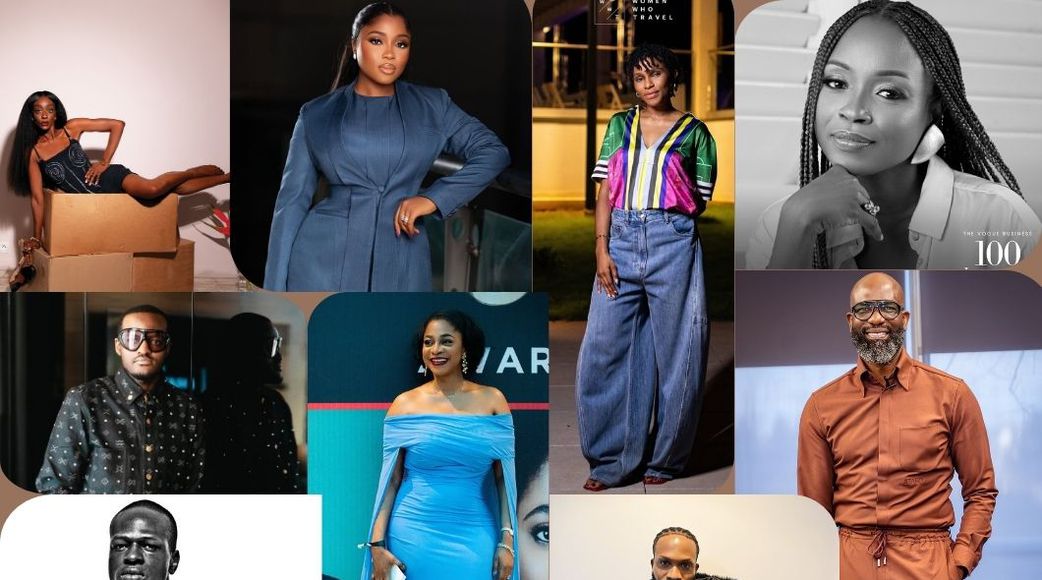LIFESTYLE

FROM AFRICA TO THE WORLD: 10 FASHION DESIGNERS REDEFINING GLOBAL STYLE
Africa’s fashion scene is home to talented designers whose work has gained international acclaim.
Africa is a continent rich in creativity, innovation, and cultural heritage. Nowhere is this more evident than in its vibrant fashion industry, where visionary designers are making their mark far beyond African borders.
These designers are celebrated for their exceptional craftsmanship and distinctive styles. With an impressive portfolio of high-profile clients and a strong presence both locally and globally—including devoted followers on social media—they’ve become true ambassadors of African excellence.
They embody the phrase “Proudly Local, Globally Loved.” And in a time when African voices are resonating more than ever, it’s only fitting to spotlight their remarkable achievements and groundbreaking work.
Here are 10 of the most influential fashion designers putting Africa on the global style map.
1. Anifa Mvuemba
Anifa Mvuemba launched her ready-to-wear womenswear label, Hanifa in 2012. Since then, the Congolese designer has built her business to the point of global success, scoring feature highlights in Forbes, British Vogue, Billboard and Elle.
In 2025, she designed one of the standout looks at the recently-concluded Met Gala, a piece proudly worn and showcased by superstar American basketball player LeBron James' wife, Savannah James.
2. Adebayo Oke-Lawal
Adebayo Oke-Lawal is the Chief Executive and Creative Director of Orange Culture, a disuptive fashion brand that promotes fluid clothing and challenges traditional stereotypes of gendered fashion.
Launched in 2010/2011, Orange Culture, under the bold creativity and leadership of Oke-Lawal, has risen to global recognition and enjoyed notable success, with features in prestigious publications like Vogue, Huffington Post, New York Times, Vanity Fair, ELLE, and Marie Claire.
He was inducted into the Business of Fashion (BoF) 500 class of 2022, a recognition of the talented individuals shaping the global fashion industry.
Orange Culture's impact is undeniable, having styled some of the best dressed celebrities like Ncuti Gatwa, Kelly Rowland, Lupita Nyongo, Dua Lipa, Davido, Adekunle Gold, Ayra Starr, Tiwa Savage, Chimamanda Adichie, and Akon.
The brand has also been featured in two major showings at the Victoria and Albert Museum for its influence in androgynous and Nigerian/African Fashion as well as numerous museums worldwide.
3. Lisa Folawiyo
Lisa Folawiyo is a prominent designer who has added flair to her design of the common West African print, making it highly sought-after not only on global runways but also in the closets of celebrities.
Folawiyo's designs have been displayed at New York Fashion Week and can be admired on big-shot celebrities like Lupita Nyong'o and Thandie Newton.
4. Aisha Ayensu
Aisha Ayensu is flying the Ghanaian flag high as a reputable, award-winning fashion designer known for her innovative designs. She has styled famous stars like Beyonce, Genevieve Nnaji, Jackie Appiah and Sandra "Alexandrina" Don-Arthur.
She is the founder and Creative Director of Christie Brown, a fashion label based in Ghana focused on crafting bespoke pieces as well as ready-to-wear outfits for the modern West African woman.
From being included in Forbes' 30 Most Promising African Entrepreneurs to features in Harpers Bazaar and Vogue Italia, Aisha Ayensu's global impact under Christie Brown is cemented in history.
5. Folake Coker
In 1998, Folake Coker founded Tiffany Amber, a ready-to-wear fashion brand focused on creating timeless and sophisticated designs.
The brand serves as a trailblazer in Nigeria's booming ready-to-wear market and has earned global recognition through awards, top-tier features in Vogue and Vanity Fair, and runways in the world's fashion capitals like New York, London, Milan, and Paris.
Folake Coker is, no doubt, a renowned African fashion designer who continues to enjoy widespread acclaim for her remarkable craft.
6. Mai Atafo
Mai Atafo is an exceptional fashion designer who launched his brand, Mai Atafo Inspired after quitting a 9-5 job in 2010.
A quintessential designer committed to the trade, Atafo trained under a Savilrow tailor, the makers of the best suits in the world.
His brand has since grown in leaps and bounds and has earned the attention of a global audience.
7. Laduma Ngxokolo
Laduma Ngxokolo is a revolutionary South African fashion designer who founded Maxhosa by Laduma, a knitwear line that proudly showcases traditional Xhosa beadwork aesthetics using South African mohair and wool, in 2011.
Since then, he has received multiple accolades and captured the attention of many fashion lovers from South Africa, London, Paris, Amsterdam, Oslo, Berlin and New York.
His designs are a celebration of Xhosa tradition, proving that the world embraces authentic African pride and legacy.
8. Imane Ayissi
Imane Ayissi is a talented fashion designer from Cameroon. His love for fashion was ignited in childhood, inspired by his mother, former Miss Cameroon.
He moved to Paris in the 90s and started out as a runway model, strutting the catwalks for top luxury brands like Dior, Lanvin, and YSL.
Eventually, he realised that haute couture had his heart. And so, he began to create incredible, bespoke pieces
In terms of global recognition, his collections grace Paris Haute Couture Week, African Fashion Weeks, and luxury boutiques across South Africa, Cameroon, and Japan.
9. Loza Maléombho
At just 13, Loza Maléombho was designing school uniforms.
Born in Brazil and raised between Côte d'Ivoire and the United States, Loza's designs draw inspiration from her multicultural roots.
She launched her eponymous label in 2009 to showcase her uniqueness to the world.
Her catalogue boasts iconic stars, including Grammy-winning Beyoncé.
10. Veekee James
Veekee James is one of Nigeria's most popular fashion designers as of 2025.
She is known for her distinct royalty and jaw-dropping red-carpet and bridal pieces.
Her global impact is significant: She is a Forbes 30 Under 30 recipient, and hosts luxury classes across Africa and Europe.
"This represents a significant development in our ongoing coverage of current events."— Editorial Board









